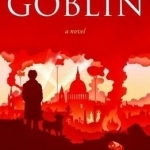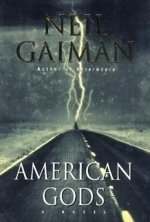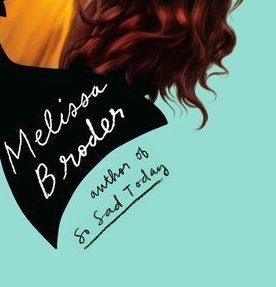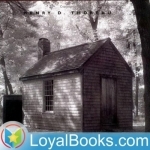
Walden by Henry David Thoreau
Podcast
Two years, two months and two days! This is what forms the time line of one man's quest for the...
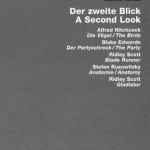
Second Look: Hitchcock: The Birds; Edwards: The Party; Scott: Blade Runner; Ruzowitzky: Anatomy; Scott: Gladiator
Book
Text in English & German. Like literary texts, films often tell stories on multiple levels. Ridley...

Trivial Pursuit: Master Edition
Tabletop Game
Thee Trivial Pursuit Master Edition game adds a modern twist to the classic game you love. It will...

Pluviometer - Rain gauge
Weather and Utilities
App
The pluviometer is an instrument used to measure the amount of rain fall in a day. It is part of...

Plague Inc.
Games
App
Can you infect the world? Plague Inc. is a unique mix of high strategy and terrifyingly realistic...
Cassie Osbourne (6 KP) rated The Secret Countess in Books
Nov 9, 2018
This is the third Eva Ibbotson book that IÕve read this year and, whilst I have enjoyed them all, I canÕt help noticing that the characters are basically all the same. Heroine who seems completely perfect and has no flaws, love interest who is complex and often broody (also the most well rounded character in the book) and the obvious villain who spends the whole book being obviously villainous. All that being said, I do really like these characters. I could relate to Anna despite her perfectness, I understood RupertÕs problems regardless of how blind he was being at times and I enjoyed just how horrible and ruthless Muriel could be. I also loved the side characters. Ollie was adorable, Lavinia was hilarious and Baskerville was strangely well fleshed out for a dog (seriously, Ibbotson gives him a whole personality where most authors wouldnÕt have bothered). Yes most of the characters were simple without huge character arcs but I liked them all the same.
IbbotsonÕs writing style is easy to slip into and nice to read, if a little over fond of commas. However it is the atmosphere that really lets this book down Ñ there isnÕt really too much of it. There are a moments where a small amount is created, and those passages are certainly the most memorable, but there are unfortunately few and far between. ThatÕs not to say that the general feeling is bad or uncomfortable to read when it shouldnÕt be, but I would liked to have seen more of...well, something.
In a similar vein to what I said about the characters earlier, most of IbbotsonÕs young adult literature seems to follow a similar structure. Girl leaves family to do something or be someone that they often donÕt approve of, meets a misunderstood man, they fall in love but he is unavailable (or she thinks he is) and she leaves him without a word but donÕt worry, they are reunited and they all live happily ever after. However, if it ainÕt broke, donÕt fix it. While the main skeleton structure is used for most of her work, each of IbbotsonÕs books have a difference and a charm that stays with you and is memorable. There are plenty of little surprises and some twists and turns.
While this review may seem mixed and sound negative, I did really enjoy this book. I have kept it on my shelves with my other Eva Ibbotson novels for a reason and IÕm sure I will return to it.
Character: 7.5
Atmosphere: 5.5
Writing Style: 9
Plot: 8
Intrigue: 8
Logic: 8
Enjoyment: 8
Eilidh G Clark (177 KP) rated Goblin in Books
Jul 2, 2019
Goblin has a difficult family life; a mother who doesn’t want her, 'Goblin-runt born blue. Nothing can kill you. [...] You're like a cockroach,' (p.5) a father who mends radio’s and barely talks and a brother (David) who spends most of his time in his bedroom. Left to her own devices, the protagonist, her dog Devil, and her two friends Mac and Stevie roam the neighbourhood and hang around in an abandoned worksite. As a collector of stories, Goblin enthusiastically attends the local church with Mac, 'I loved the stories, turning them over in my head, weaving my own.' (p.24) before meeting The Crazy Pigeon Lady who tells her tales of Lizards people from the realm below. The childhood innocence in these chapters, mixed with magic realism, break down the walls of adult reasoning and creates a wonderful suspension of disbelief.
But without giving away the story plot, the suspension of disbelief serves another purpose; to divert the reader (as well as the adult protagonist) from the truth. So, while the adult Goblin searches amongst her tangled past, she takes the reader along for the ride. We meet multiple parents, live life on the road, come alive on the streets and in the circus, explore love, death, desire, and hate – and somewhere in the middle we meet an impressive collection of animals - Goblin has it all. And as far as strong female protagonists go, she’s right up there with Anais Hendricks from Jenni Fagan’s Panopticon, to Janie Ryan in Kerry Hudson’s Tony Hogan Bought Me an Ice Cream Float Before He Stole My Ma, characters who are so real you might just walk by them on the street.
The only teeny tiny criticism about the novel is that the second half spans over a lengthy period of time and it felt a little rushed. However, there is so much to say about this novel, so many angles to discuss, from Queer Theory to Religion, from Myth to Realism, and as a graduate of English Literature I could have a field day studying this book but for now, as a lover of good books, I’ll give it a big thumbs up and a huge recommendation, it’ll be finding a space on my ‘keep’ book shelve.
Goblin, Ever Dundas (2017) published by Saraband
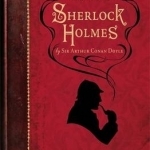
The Penguin Complete Sherlock Holmes
Book
The Penguin Complete Sherlock Holmes by Arthur Conan Doyle are the complete adventures of the...
Cynthia Armistead (17 KP) rated American Gods in Books
Mar 1, 2018
I've certainly read some short stories, too. The most memorable, <a href="http://en.wikipedia.org/wiki/Snow,_Glass,_Apples">"Snow, Glass, Apples"</a> was reprinted in an anthology I read recently. I find it disturbing, so I won't re-read it. Well-written, of course—it wouldn't be so very memorably distressing if it weren't so masterfully done! (I found the <a href="http://www.holycow.com/dreaming/stories/snow-glass-apples">text online</a> if you care to read it, but please understand that the story deals with pedophilia, necrophilia, and incest here. It is the polar opposite of all things Disney.) Snow White was never one of of my favorite fairy tales, and Gaiman definitely pushed it much farther down the list.
In any case, I don't know what I was expecting from Gaiman, but <i>American Gods</i> wasn't it. I like stories with happy endings, and within the first few chapters I was fairly sure that there wouldn't be one. Is Gaiman fundamentally opposed to joy, or is it just happiness that he doesn't allow?
The novel is epic. It is masterful. All that stuff from the big critics is dead on. The book could be used as the backbone of a mythological scavenger hunt if a teacher were willing to run a very unstructured but engaging course that way. I certainly enjoyed that aspect of it, and it made me glad that I was reading it on my iTouch so that I could look up anything I liked online at any time, no matter where I happened to be (which was almost always at home or somewhere else that had wifi access, happily).
I seldom want to see illustrations in any book, but yes, I think I would like to see good pictures of some of the characters Gaiman described in this one. On the other hand, without artwork I spent time imagining what the characters looked like based on the descriptions. I don't normally stop to do that, as such matters as seldom relevant to a plot, but these beings caught my fancy. Not enough that I would sit through an entire graphic novel, I'm afraid, but if I saw one now I might flip through it to see how the artist's renderings compare with my versions.
I'm seldom able to identify an overall Theme to the books I read. Most of them, honestly, are fluff. I'm fine with that. I read them because they entertain me. <i>American Gods</i> is different. It is entertaining, but it isn't light or fluffy in the least. It definitely has an easily identifiably Theme and Tropes and all those elements that I recall from long-ago classes, the sorts of things that put me off from my original English major because I hated tearing other author's works apart instead of writing anything original. (Now, I begin to understand that we were being taught to recognize what makes for good writing so we might have some hope of possibly creating some of it one day.)
I somewhat timidly conclude that <i>American Gods</i> is the first piece of Literature I've read in a very long time, and well worth the time spent reading it. (I find it rather amusing that it would be British Literature, despite its title, due to the author's nationality.) I'm not going to state the theme, because that would be a spoiler, and I hate putting those in reviews—but it's something that I see as a Truth, and one that needs to be stated far more often, especiallly today. It's even more interesting that it took a Brit to say it.
The book is dark, although it does have some very bright spots in it. I will acknowledge that I was going through a particularly bad time with regards to my health when I was reading it, but I still think it might be best for some people to read this one when in a fairly positive state of mind.
Janeeny (200 KP) rated The Pisces in Books
May 9, 2019 (Updated Jun 10, 2019)
I read this as this months book club book. The lady that suggested it did mention that there are a fair amount of sex scenes and sexual references so I was prepared. However I must say that, for me, none of the sex scenes were gratuitous, they formed part of the story. If you took out the sex scenes the book really wouldn’t make a lot of sense or would at least be a bit weaker for it. The language she uses isn’t cliche or cringey either (there’s no heaving breasts or throbbing body parts) it’s very ‘real’.
This book is a bit like the ones you’re given to read in English literature classes in school, that are rife with meaning and symbolism that you have no idea about until your teacher points it out. I feel there is a strong feminist message in there somewhere, as most of the women in the book are trying to fight a sexual reliance on men. It’s also heavily underlined by the fact that literally all the male characters are weak in one way or another.
To that point I really did not like Theo, the main love interest. He seemed a bit too weak, not as a character but as a person. This is a book with a strong feminist message, so it wouldn’t do to have your heroine overshadowed by a man so that is understandable. (A little side note, a member of my book group bought up the interesting idea that the ‘weakness’ is just an act and he’s psychologically preying on Lucy’s vulnerability)
There are a lot of references to Sappho, which again I feel hints at a feminist message. I’m sorry to say that even though I am aware of Sappho I have barely any knowledge about her. I have now acquired a couple of books from the library to remedy this.
There were some quite strong opinions on this in book group. Whilst I liked the book for it’s style of writing, one of the other ladies liked it for its controversy, but most of the group really didn’t like it at all. The strong feeling against it came, mostly, from the explicit language that was used, whilst one member was so bewildered by the events within the book she was convinced the main character was just on a big drug trip and hallucinating the whole thing.
A couple of us did take something away from the book, I took away a strong interest in the works of Sappho, and one of the other members took away a deeper understanding of a past friend whose behaviour she recognised in some of the characters in the book.
I think we’re going for something a little less controversial next month

